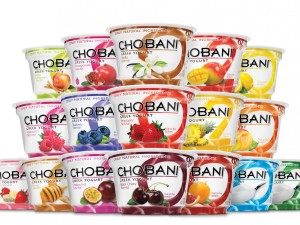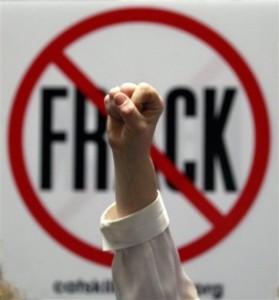Whole Foods Will No Longer Sell Chobani Greek Yogurt as of Early Next Year
Whole Foods announced on Wednesday that as of early next year it will no longer stock sell Chobani Greek yogurt.? Chobani, which was founded in 2005 by Hamdi Ulukaya, a Turkish immigrant, and has grown to more than $1 billion in annual sales. Whole Foods? decision to drop Chobani is attributed to the yogurt maker?s use of milk from cows that are fed GMO?s, like corn  and soy beans. In 2018, Whole Foods will require products sold in its stores to disclose if they contain GMO ingredients. The company has asked all of its Greek yogurt suppliers to devise new products and flavors that would distinguish what Whole Foods offers. ?Whole Foods has not said it will ban products containing genetically engineered ingredients, only that it will require them to be labeled as such.
and soy beans. In 2018, Whole Foods will require products sold in its stores to disclose if they contain GMO ingredients. The company has asked all of its Greek yogurt suppliers to devise new products and flavors that would distinguish what Whole Foods offers. ?Whole Foods has not said it will ban products containing genetically engineered ingredients, only that it will require them to be labeled as such.
Fracking Opponents Win Big in Pennsylvania
Robinson Township in western Pennsylvania is home to a couple thousand residents and about 20 fracked wells. In a resounding victory for common sense and for local governments throughout the state, residents there and in six other towns won an epic court battle last week that will give them back the right to regulate or  even evict the fracking operations in their midst. The Pennsylvania Supreme Court on Thursday struck down elements of a state law that had prevented local governments from regulating fracking activities. The long-awaited decision is a blow to a 2012 law known as Act 13 that was promoted by [Gov. Tom Corbett (R)] and the Marcellus Shale natural gas industry as a means to create a uniform statewide standard for gas development. By a 4-2 vote, the court ruled that the zoning provisions in the law were unconstitutional. The the majority of the court agreed that Act 13 is unconstitutional, and that local governments can zone oil and gas drilling like they do other activities.
even evict the fracking operations in their midst. The Pennsylvania Supreme Court on Thursday struck down elements of a state law that had prevented local governments from regulating fracking activities. The long-awaited decision is a blow to a 2012 law known as Act 13 that was promoted by [Gov. Tom Corbett (R)] and the Marcellus Shale natural gas industry as a means to create a uniform statewide standard for gas development. By a 4-2 vote, the court ruled that the zoning provisions in the law were unconstitutional. The the majority of the court agreed that Act 13 is unconstitutional, and that local governments can zone oil and gas drilling like they do other activities.
?97% of Chicken Covered in Bacteria: Consumer Reports
Consumer Reports’ latest report isn’t for the weak of stomach: Some 97% of the 316 raw chicken breasts it purchased at US stores in July contained “worrisome amounts of bacteria.” While it admits it’s “unrealistic to expect uncooked chicken won’t contain any potentially harmful bacteria … our latest tests produced troubling findings,” it writes. The breasts-20% were labeled antibiotic-free, and about 8% were organic-were tested for six kinds of bacteria. More than half contained fecal matter, half tested positive for antibiotic-resistant bacteria, and there was no appreciable difference in breasts labelled “organic” or “no antibiotics.” It  ultimately recommends no brand of chicken, but advises vigilant hand-washing and proper cooking (to at least 165 degrees), and does say there are “good reasons” for opting for antibiotic-free brands. A separate Pew study picked up by the Washington Post notes the Department of Agriculture’s “serious weaknesses” in poultry plant oversight and the “insufficient” moves it took “to protect public health” in the wake of chicken-related salmonella outbreaks. “When more than 500 people get sick from a food-borne illness outbreak, that means the system we have in place wasn’t working to protect public health,” Pew’s Food Safety Campaign director said. Consumer Reports recommends the USDA abandon its new inspection system, and Pew is in favor of allowing more aggressive actions from inspectors, including unannounced pathogen testing. The National Chicken Council president, however, said, “Eliminating bacteria entirely is always the goal, but in reality, it’s simply not feasible.”
ultimately recommends no brand of chicken, but advises vigilant hand-washing and proper cooking (to at least 165 degrees), and does say there are “good reasons” for opting for antibiotic-free brands. A separate Pew study picked up by the Washington Post notes the Department of Agriculture’s “serious weaknesses” in poultry plant oversight and the “insufficient” moves it took “to protect public health” in the wake of chicken-related salmonella outbreaks. “When more than 500 people get sick from a food-borne illness outbreak, that means the system we have in place wasn’t working to protect public health,” Pew’s Food Safety Campaign director said. Consumer Reports recommends the USDA abandon its new inspection system, and Pew is in favor of allowing more aggressive actions from inspectors, including unannounced pathogen testing. The National Chicken Council president, however, said, “Eliminating bacteria entirely is always the goal, but in reality, it’s simply not feasible.”

Comments are closed.